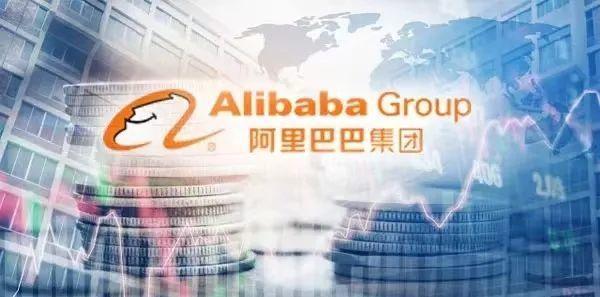
Recently, Alibaba Group liquidated its entire stake in Indian fintech company Paytm.
As India's largest digital mobile payment and commerce platform, Paytm has always been regarded as India's version of "Alipay". As early as January this year, market insiders said that Alibaba Group sold a 3% stake in Paytm.
Alibaba Group's overseas investment landscape seems to be waiting for a new adjustment. In the past two years, Alibaba has sold a number of investment projects in India, but unlike the Indian market, Alibaba Group has not made significant moves from the investment map of the payment business in Indonesia and Thailand.
Clearance of all stocks
According to information from the National Stock Exchange of India, on February 10, local time, Alibaba Group sold the remaining shares of One97Communications, a listed entity of Indian fintech company Paytm, for 13.78 billion rupees (about 167 million US dollars) through a block transaction.
The transaction was sold by Alibaba.com Singapore E-commerce Pvt Ltd in block trades at Rs 642.74 per share for a total of more than 21.43 million shares. As of the close of trading on the 10th, Paytm's shares closed sharply down more than 8 per cent to close at Rs 650.55, but are still up around 20 per cent so far this year.
In fact, in mid-January this year, Alibaba Singapore e-commerce company also sold a 3.1% share of Paytm at Rs 536.95 per share in a block transaction for US$125 million.
After the February 10 transaction, Alibaba has liquidated all of its shares in Paytm, totaling 6.26%. However, Ant Group, an affiliate of Alibaba, still holds a 25% stake in Paytm and has not diluted its shareholding.
Founded in 2010, Paytm is India's largest digital payment platform, known as India's version of "Alipay", currently has more than 300 million registered customers and 20 million merchants, with the development of business, its service areas have gradually expanded, becoming a comprehensive financial services platform.
As early as 2015, Ant Group began to become a strategic investor in Paytm, holding 25% of the shares, ranking the largest shareholder, accelerating Paytm's business expansion through "cooperative investment + technology output". At that time, Alibaba and Paytm issued a joint statement stating that the capital injection will help Paytm expand its mobile commerce and payment system in India, as well as investments in marketing, technology and talent.
In November 2021, Paytm listed in India, raising INR 183 billion (about RMB 15.72 billion at that time), setting a record for the largest IPO in India. Behind its listing, there are many star investment institutions to escort: Ant Group holds 29.6% of the shares through its overseas equity investment platform Antfin (Netherlands) Holding B.V; SoftBank Group and Alibaba Group hold 19.6% and 7.2% respectively; In addition, BlackRock and the Canada Pension Plan Investment Board, as well as Buffett's Berkshire Hathaway, have also become cornerstone investors in Paytm.
Strategic shift
The liquidation of Paytm shares has also glimpsed some market strategy shifts, compared with the large entry in previous years, Alibaba Group has almost completely withdrawn from the investment in the region.
Looking back, Alibaba Group generously entered the Indian market from 2014 to 2020, and deployed a number of technology companies in its territory, covering payment, e-commerce, government, entertainment, travel and other fields. However, since 2021, Alibaba has sold a number of investment projects in India.
In May 2022, PaytmMall announced that its largest shareholder, Alibaba, and Ant Group, its fourth-largest shareholder, both withdrew from the company as its strategic focus shifted from traditional brick-and-mortar e-commerce to B2B exports and open online digital commerce. In November 2022, Alibaba Group sold a 3.07% stake in India-listed food delivery platform Zomato in the open market for Rs 1,631 crore.
However, unlike the Indian market, from the perspective of the investment map of the payment business in Indonesia and Thailand, Alibaba Group has not made obvious moves at present.
From the perspective of domestic payment business, Alibaba Group has also carried out rectification in accordance with regulatory requirements in recent years. On January 13 this year, the head of the relevant department of the central bank said at the press conference of the State Council's new office that at present, most of the problems of the 14 large platform enterprises, including Ant Group, have basically completed rectification, enterprises operate in compliance and compete fairly, consumer protection awareness has been significantly enhanced, and financial business has been continuously standardized.
At the same time, the financial management department has accelerated the construction of the regulatory system, and issued a series of targeted institutional documents in the fields of third-party payment, personal credit, Internet deposits, insurance, securities, funds, etc., and the framework of the normalized supervision system for the financial business of platform enterprises has been initially formed, laying a good institutional foundation for the subsequent normalization of supervision.
On January 7, Ant Group's official website announced that in order to continuously improve corporate governance and achieve long-term sustainable development, Ant Group intends to take a series of upgrade measures at the board of directors and shareholder levels, including the introduction of a fifth independent director, the adjustment of the upper structure of shareholders, and the promotion of matching shareholders' voting rights with economic interests.
At the heart of this adjustment is the change in the voting rights of major shareholders: from the joint exercise of the voting rights of shares by Jack Ma and his concerted actors, to the independent exercise of the voting rights of shares by 10 natural persons, including the management of Ant Group, employee representatives and founder Jack Ma.
After this adjustment, the major shareholders of Ant Group exercise their share voting rights independently of each other and do not act in concert, and there is no situation where any direct or indirect shareholders control Ant Group alone or jointly.